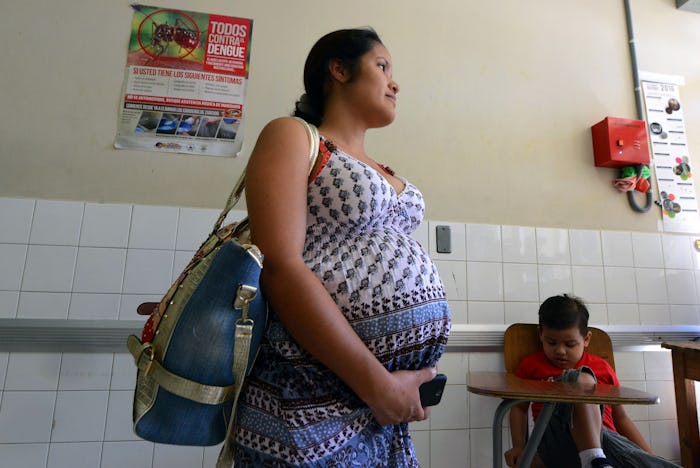Life

Scientists Say Zika Is "Scarier" Than They Thought, & Here’s Why
When it comes to describing the potential danger posed by the Zika virus, federal health officials have moved from tones of caution to those of alarm, according to the Washington Post. At a White House press conference this week, the nation’s foremost Zika experts said that the more researchers uncover about the virus, the scarier it appears, the Post reported. Citing a laundry list of mounting concerns over the mosquito-born virus, officials from the National Institutes of Health and the Centers of Disease Control and Prevention called the Zika virus “scarier than we initially thought” and urged more money for mosquito control, disease prevention, and vaccine development.
In February, President Barack Obama requested $1.8 billion in emergency funding from Congress to combat Zika in the United States and abroad. But, so far, Congress has declined to act on Obama’s Zika proposal, leading to the administration’s recent decision to redirect funds designated to fight Ebola and other diseases towards stopping the Zika spread, CNN reported.
But those funds are “not enough for us to get the job done,” the NIH’s Dr. Anthony Fauci told White House reporters this week, according to the Post. Fauci added, “I’m not an alarmist,” but cited several reasons that Zika is causing concerns to grow among the nation’s health experts.
Studies Point To Longer Incubation Periods & A Wider Window For Infection
Efforts to detect Zika through early ultrasounds may lead to “false reassurances,” according to findings released earlier this month. A study involving a 33-year-old Washington D.C. resident who was infected by Zika, but whose fetus failed to show any signs of infection until well into her second trimester, has led researchers to question the current thinking on how long Zika can go undetected in the bloodstream. The Post reported growing evidence that the virus can cause miscarriages, stillbirths, and birth defects if a woman is exposed to Zika at any point in her pregnancy, rather than just in the first trimester.
As the window for danger widens, CDC guidelines have shifted. Initially, the agency urged blood screening only for pregnant women who felt ill after possible Zika exposure, the CDC has since changed its guidelines to include blood screenings for all women who have lived in or visited areas with active Zika transmissions and at least one ultrasound for any woman who might have been exposed to the virus.
Zika Infection Causes More Harm — Whether The Patient Is Pregnant Or Not
From the beginning of the outbreak, evidence has pointed to a link between the Zika virus and the birth defect microcephaly, as well as to Guillain-Barré syndrome. However, new evidence has emerged that the Zika virus could cause other serious health problems in adult patients, including more neurological disorders than were originally suspected. According to The Atlantic, there have been several reports of people exposed to Zika who later developed severe infections of the brain and spinal cord. The Post also pointed to evidence that the virus specifically attacks the brain cells of a developing fetus.
The Disease Is Likely To Spread Farther North Than Experts Originally Feared
While earlier predictions were that, if the virus did hit the United States, it would likely keep to the southernmost states, Schuchat said this week that Zika is likely to travel north to San Francisco and New York, according to CNN. Noting revised surveillance maps for a potential U.S. outbreak, she said that the insects known to carry the mosquito could be found in more states than originally suspected
The List Of Things We Don’t Know About Zika Is Getting Longer
The list of unknowns about Zika — including basic information about the virus’s basic makeup and the rate that it spreads — make efforts to develop an effective vaccine and eradication strategy even more difficult. Speaking to CNN earlier this year, French researcher Nicholas Jackson warned that the long list of unknowns could thwart international vaccine efforts. However, Fauci said this week that, despite the knowledge gaps, the agency planned to deliver a possible vaccine for safety testing sometime this fall.
A Partisan Fight Over Funding Is Making Matters Worse
Lack of funding could threaten those vaccine plans, U.S. health officials said this week. According to CNN, White House officials said that the current amount of money available to address Zika falls seriously short of the amount needed to address what the World Health Organization has deemed a “global health emergency.” In a statement to reporters earlier this week, Office of Management and Budget Director Shaun Donovan said that “without the full amount of requested emergency supplemental funding, many activities that need to start now would have to be delayed, or curtailed or stopped, within months” — which could place an effective vaccine program well out of reach of those currently at risk of contracting the disease.